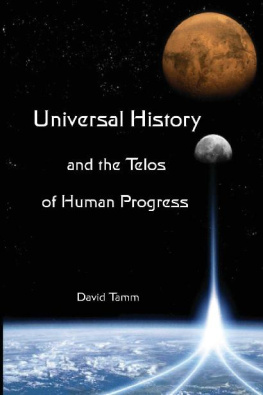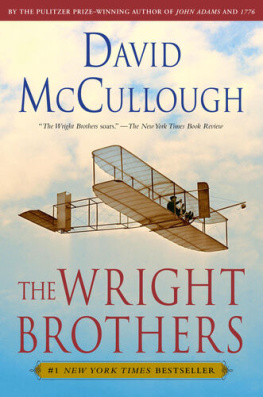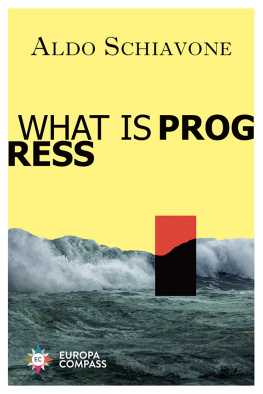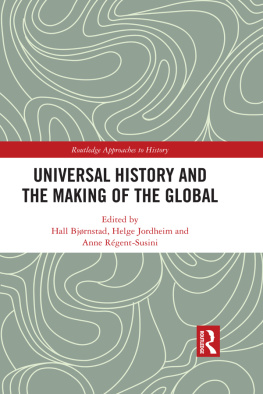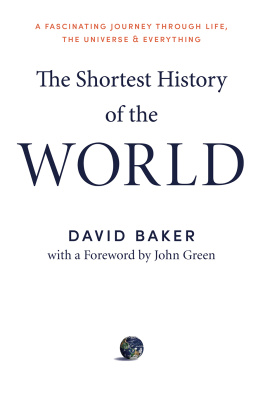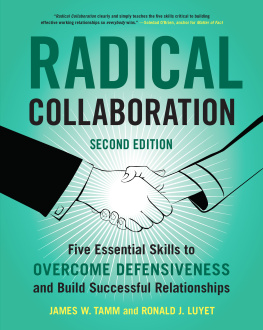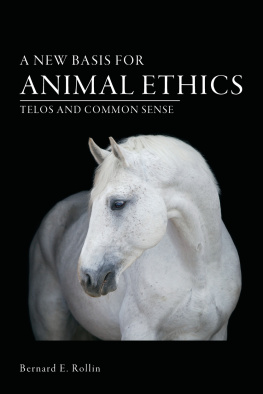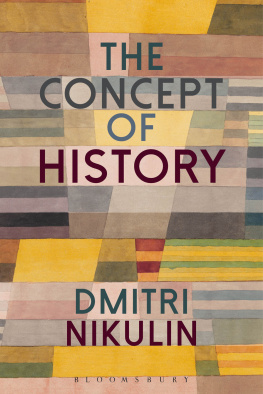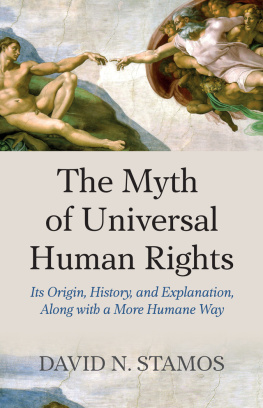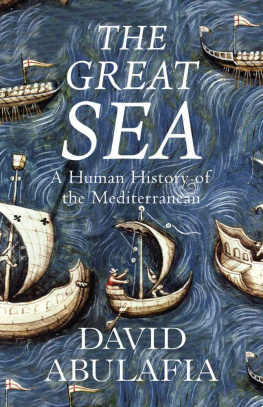Universal History
and the Telos of
Human Progress
How History is Made
David Tamm
Copyright 2014
University of Antarctica Press
Without limiting the rights under copyright reserved above, no part of this publication may be reproduced without the prior written permission of both the copyright owner and the publisher.
Cover image: Courtesy of the European Space Agency
Dedicated To:
My mother, who taught me to write using a series of different colored crayons.
---------------------------------------------------------------------------

The West has a responsibility to maintain its constitution and move forward in stability not only for its own good, but also to fulfill the responsibility it has to all civilizations: to become strong enough to protect the earth against nature. It may be that all peoples and cultures have their own ends and destinies, and that there is no universal civilization. But that is exactly what the titanic totality of the existing cosmos cares nothing about. Against natures forces of indiscriminate brutality, annihilation and extermination, stands the Western Leviathan.
-David Tamm, ISCSC Conference 2012, Washington DC
TABLE OF CONTENTS
/ 13
Meaning in history.
/ 15
What constitutes a universal history book? Two types identified.
/ 18
Where did time come from? Astronomical and cultural sources.
/ 21
Do human beings really build up society up over time?
CHAPTER I: LESSONS OF THE ANCIENTS
The Beginnings of Universal History Writing / 23
What are the oldest books dedicated to the whole human story?
/ 24
Does civilization progress to an ever-higher plane; or rise and fall?
/ 25
What does the Bible say about human progress and its direction?
/ 28
Hesiod describes a mythological Age of Gold.
/ 29
The lesson of Prometheus driving cultural progress ever higher.
/ 31
Herodotus stores knowledge outside of his head.
/ 35
Ephorus, Polybius, Diodorus and Sima Qian write lost histories.
/ 38
Did the pagan Romans think of the big picture as progressive?
/ 39
Lucretius develops a theory of continual change and progression.
/ 41
Livy, Tacitus and Seneca write histories and tell us why they did.
/ 43
Eusebius and Augustine develop the Christian theory of history.
/ 47
They see progress as motion toward the Kingdom of Heaven.
/ 51
Orosius, Bede and Gregory illuminate the Dark Ages.
/ 57
Gothic era historians like Enikel, Froissart and Khaldun produce.
The stunning idea that all that ever can be is already within us.
/ 64
A return to cycles in the age of Sabellicus and Machiavelli.
/ 66
Joachim de Fiores mystic vision and that of Columbus.
/ 67
A battle for history between Catholics and Protestants.
/ 69
Bacon exercises False Idols of the Mind, Bodin links theories.
CHAPTER II: LESSONS OF THE MODERNS
/ 73
Raleigh & Heylyn observe the Old and New Worlds collide.
/ 83
The American vision was built on puritanical social evolution.
/ 85
Bossuet writes in the netherworld between medieval and modern.
/ 89
Culture shock comes with the realization that many cultures exist.
/ 91
Is human nature static or malleable?
/ 92
Spinoza, Leibniz and Vicos insights on the Great Chain of Being .
/ 96
The largest (and largely unknown) history project of all time.
/ 105
The project expands into 64 volumes of mercantilism-as-progress.
/ 112
Tobias Smollett on how the Universal History was assembled.
/ 117
Most people dont know Voltaire wrote a world history book.
He sees civilization as building upon itself by developing the mind.
The woman he wrote for and her verdict.
/ 125
The Enlightenment penchant for equality means judging others.
/ 128
The modernist project begins; Tennysons poem encapsulates it.
/ 130
Turgot gives the modernist project an economic dimension.
/ 135
Jefferson discusses progress as building a new civilization.
Condorcet glows about the future yet is arrested by radicals.
/ 145
Enlightenment liberality or Rousseauian neo-primitivism?
Herder defines a people as a unique group with their own goals.
Kant Hypothesizes a Universal History / 151
Kant asks if humanity has an underlying unity or if it does not.
/ 165
Walter Scott agrees each people has a unique character.
/ 169
Millot writes a national world history textbook for France.
/ 175
Anquetil adapts works into French, Holberg writes one in Latin.
/183
Mavor reworks it to be more approachable.
/ 189
A German university specializes in historys codification.
/ 194
Translation dilemmas open a series of questions in the genre.
/ 198
Muller builds on Schlozer to construct a professional work.
/ 206
Ranke and followers formulate how to best conduct research.
/ 211
Saint-Simons alternative method of doing republican government.
/ 214
What did Comtes new branch of study say about social progress?
/ 215
Fichte discovers the metaphysical basis and purpose of the nation.
/ 218
Hegels titanic formulation synthesizes Geist , the engine of history.
/ 224
Marx reformulation determines material forces drive history.
/ 230
Darwin argues even biology progresses- by evolving new forms.
/ 232
Humboldt explains why people must know the big picture.
/ 239
Rotteck develops a liberal work in a monarchist principality.
/ 245
Weber writes; Ploetz compiles a totally chronological style.
/ 247
A coalition of professors complete a huge universal history project.
Early-19 th Century Anglo-Americans /
Lardner, Robbins and others begin a golden era of history writing.
of Man / 259
Pioneer educator Emma Willard writes for college women.
Mid-19 th Century Anglo-Americans / 264
Goodrich and Maunder in the ides of the Industrial Age.
/ 275
Duyckinck writes for a young America and inspires Melville.
/ 279
Swinton, Myers and others write popular schoolbooks.
/ 284
Ollier and Robinson are hired to write by learned organizations.
/ 287
Ridpath, Clare and Tyler stand at the apex of history.
/ 295
Bancroft and others observe social progress in the United States.
/ 299
Sociologists like Weber announce modernisms characteristics.
/ 301
The condition of modern life defines fin de siecle progress.
/ 303
Chamberlain uses race science to explain uneven progress.
W.E.B. Dubois and Friedrich Ratzel examine ethnographic groups.
/ 314
The meaning of history at the close of the 19 th century.
/ 314
Zenith of the Grand Narrative: Larned, Duruy, Ellis, Tappan.
/ 325
Helmolt, Williams, Lodge, and the Eleventh Britannica.
/ 338
Progress as the ever-increasing ability to control nature.
CHAPTER III: THE MODERNIST VISION OBLITERATES ITSELF
/ 347
Nietzsche expresses doubt in progress and the modernist project.
/ 354
WWI confirms Nietzsche; Wells writes a new Grand Narrative.
/ 361
Horne, Breasted, Parsons and others write in an age of anxiety.
/ 368
Van Loon draws out history; the Nazis ban Gombrichs book.
/ 375
Spengler and Toynbee build huge paradigms, others demur.
Next page
